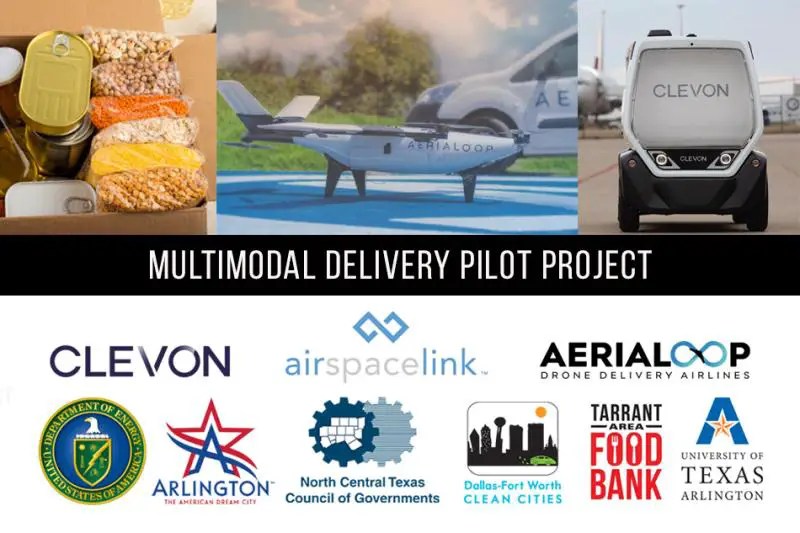
The Texas city of Arlington is preparing to launch a trial using drones and robotic ground vehicles to deliver packages from a local food bank to recipient homes in a bid to reduce the number of vans – and emissions those produce – in transporting the vital parcels where they’re needed.
Arlington officials announced the project after receiving a $780,00 grant from the US Department of Energy to test drone and robotic delivery in partnership with local Tarrant Food Bank. The trial will measure the efficiency and scalability of autonomous, electric vehicles in transporting care packages to residents in need, while also reducing carbon emissions.
The two-year initiative covering Arlington’s eastern section additionally aims to provide sustenance to Tarrant Food Bank recipients who – contrary to some perceptions – often work one or more jobs, provide care for children or elderly parents, or have other essential activities that leave little time for collecting food packages themselves.
Drone deliveries in Arlington’s test run will be overseen by Michigan-headquartered UAV tech and services company Airspace Link, which will use its AirHub Portal to provide the data feeds needed for planning, conducting, and continuing management of flights, as well asthe ground vehicle’s movements.
Aerial deliveries will be flown by up-and-coming drone startup AerialLoop. The Miami-based company’s ALT6-4 UAV can carry nearly nine pounds of payload, and is already in operation in US markets and across Latin America.
Ground transportation will be provided by Estonian autonomous delivery firm Clevon, using its wheeled robot of the same name. The unit’s cargo compartment will be unlocked by people receiving packages upon arrival.
Alicia Winkelblech, Arlington’s transportation director, said the delivery project seeks to improve the lives of food bank recipients, while using emerging drone and robotic tech to reduce traffic and emission problems the city faces. Data and findings of the trial will be freely shared with other municipalities and organizations looking to innovate in similar ways.
“As transportation technology advances, so does the potential to make positive changes in the way we connect people with goods and services,” said Winkelblech. “Using electric drones and ground delivery robots to provide ‘last-mile’ delivery services can be a more environmentally friendly alternative to traditional delivery vehicles. As a national leader in innovative transportation solutions, we are honored to partner with these autonomous delivery vehicle industry experts and other community leaders to research and share whether this technology is a viable way to serve the public while reducing greenhouse gases.”
The first year of the project will determine efficient flight and road paths that won’t intrude on residents‘ lives or movements, then proceed through series of two- to four-week demonstration phases throughout for the rest of the trial. Also participating are the University of Texas at Arlington, and North Central Texas Council of Governments Dallas-Fort Worth Clean Cities Coalition.
FTC: We use income earning auto affiliate links. More.



Comments